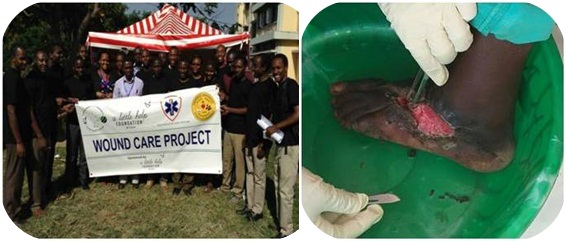Course Objectives of undergraduate programs ( MD, BMLS, BSNE , BScN and BPharm )
- Describe the host-parasite-environment relationship in health and in microbial diseases
- Be familiar with the general epidemiological aspects of microbial health problems and preventive measures of specific health problems with special reference to sub Saharan Africa.
- Be familiar with collection and handling of appropriate specimens for microbiological investigation.
- Be able to perform essential microbiological and immunological laboratory procedures used in determining etiology of common microbial and immunological health problems.
- To enable them appreciate the role of the subject in problem solving in infectious diseases management, prevention and control.
Course Objectives of MASTER OF SCIENCE IN CLINICAL MICROBIOLOGY AND DIAGNOSTIC MOLECULAR BIOLOGY
- To produce graduate capable of performimng clinical microbiology and diagnostic molecular biology in health diagnostics, medical research fieldand industrial
Course Objectives for graduate programs(MMed1)
-
The department also offers this course for students taking Masters of Medicine in various specialties. The main objectives of this course are to enable graduate students to:
- Describe major clinical syndromes and their etiological agents using current epidemiological information generated locally in relation with the global trends.
- Describe basic principles in the diagnosis and management of infectious diseases by critically analyzing the cost effective diagnostic tools and antimicrobial therapeutic options available locally in relation to the existing options across the globe.
- Describe the immunology of infectious diseases critically by delineating immunodiagnostics and novel immunotherapeutics especially for infectious diseases of public health importance in Tanzania.


A word from HoD

Dr.Helmut Nyawale
This platform forms a base of familiarization between members of the department with students, local and international researchers/scientists/academicians in the field of infectious diseases and clinical microbiology. The department aims at training undergraduate and postgraduate students to acquire sound knowledge and skills in the field of microbiology vested with moral and ethical values, as well as to produce research outputs with positive impacts on the wellbeing of the patients and the community at large. Furthermore, we aim at providing quality services in Clinical Microbiology in the lake zone regions.




